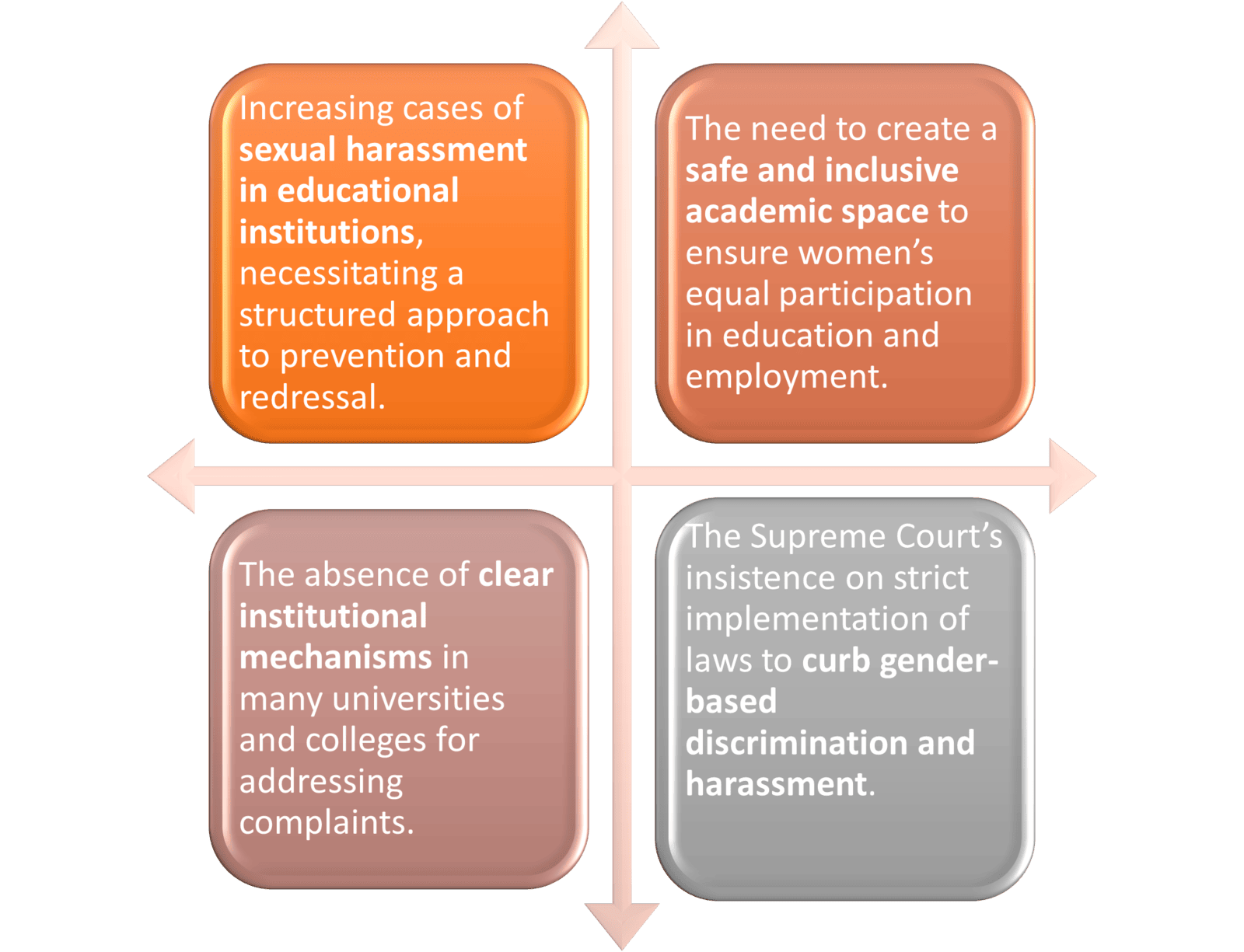University Grants Commission (Prevention, Prohibition, and Redressal of Sexual Harassment of Women Employees and Students in Higher Educational Institutions) Regulations, 2015
A.Introduction
The UGC Regulations, 2015, were formulated under the mandate of the Sexual Harassment of Women at Workplace (Prevention, Prohibition, and Redressal) Act, 2013, and in alignment with the Visakha Guidelines laid down by the Supreme Court of India. These regulations aim to ensure a safe, secure, and gender-sensitive environment for women in higher educational institutions (HEIs). They emphasize zero tolerance for sexual harassment and establish mechanisms for prevention, complaint resolution, and strict action against offenders.
B.Need
The regulations were introduced due to:

C.Applicability
The regulations applies to:
- All Higher Educational Institutions (HEIs) recognized by UGC across India, including universities, colleges, and research institutions.
- Women employees and students (including research scholars and interns) associated with these institutions.
- All individuals present on the institution's premises, including faculty, non-teaching staff, visitors, and contractual employees.
D.Punishment
Punishments for those found guilty of sexual harassment include:
- For students: Expulsion, rustication, suspension, withdrawal of degrees, or denial of admission.
- For employees: Termination, suspension, demotion, withholding promotions, or financial penalties.
- For others (contractual staff, visitors, etc.): Debarment from campus, legal action as per IPC, or contract termination.
E.Consequences of Non-Compliance
Non-compliance with the regulations can lead to:
- Withdrawal of UGC grants/funding for the institution.
- Loss of accreditation or recognition by regulatory bodies.
- Legal action against the head of the institution for failure to implement the policy.
- Reputation damage and loss of student trust in the institution.
- Increased liability in court cases and legal disputes.
- Any other action as mentioned in Section 12 of the Act.
These regulations serve as a critical framework to safeguard the rights of women in educational institutions, ensuring they can study and work in a safe and harassment-free environment. By implementing these regulations effectively, your institution not only meets legal standards but also sets an example of ethical leadership and commitment to gender equality.
DISCLAIMER
This document is not for public circulation and is meant only for intended recipient. It is not exhaustive and does not purport any opinions or suggestions. Any action taken on the basis of this compilation is strictly at your own risk and we shall not be held liable for the same. All right reserved.
- Authoured by CS. Sanat Chavan of RBKRS & ASSOCIATES LLP

